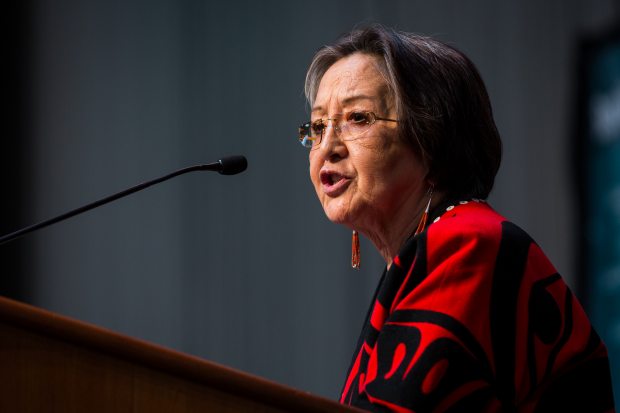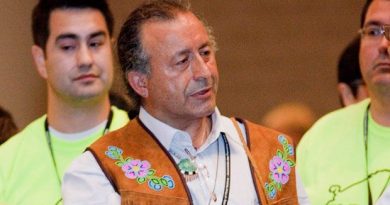Alaska subsistence issues raised before US Senate

Old battles over subsistence resurfaced in the U.S. Senate Thursday, as state officials and Native leaders sought allies in the Senate’s Energy and Natural Resources Committee.
“The state’s subsistence laws have effectively been gutted,” said Rosita Worl, chair of the Alaska Federation of Natives’ Subsistence Committee.
But what the state really needs is the ability to actively manage its wildlife resources so more hunting is available for everybody, said Craig Fleener, Deputy Commissioner of the Alaska Department of Fish and Game.
By “actively manage,” Fleener meant killing such predators as wolves to increase the population of game, such as caribou. He used the federal wildlife refuge on Unimak Island in the Aleutian Chain as an example.
The state blamed wolf predation for a caribou decline there, but even a state lawsuit against the feds failed to win permission to “actively manage” the Unimak wolf population and open up more subsistence opportunities for residents of False Pass, a town on the island, he said.
The two sides offered competing visions of where things were going wrong with wildlife management in Alaska, but sometimes they appeared to be talking past each other when it came to solutions.
“One area of agreement is that thing aren’t working as promised,” said Sen. Lisa Murkowski, R-Alaska, who called for the hearing.
Wildlife management
Influential Sens. Ron Wyden, D-Oregon, as well as committee chairman, and Joe Manchin, D-West Virginia, attended the hearing and promised to continue to work with Murkowski and the witnesses on solutions to the conflict that has stalemated Alaskans.
Murkowski said the committee has jurisdiction over how the Alaska National Interest Lands Conservation Act and the Alaska Native Claims Settlement Act are implemented. Those two acts have been interpreted to provide for a rural and Native preference. They’ve been at odds with the Alaska Constitution’s prohibition on preferences for any specific group, she said.
Such a hearing has never been held in the decades since the acts passed, Murkowski said. But she immediately began trying to lower expectations, too.
“I don’t have any illusions that by holding this hearing today we’re going to solve with one fell swoop the issue with regard to wildlife management,” she said.
While she said she was in agreement with Fleener’s assessment of Unimak, the state’s response may not have been the most productive option.
“Litigation is not going to result in more caribou,” she said.
The long-simmering issue, which resulted in several unsuccessful sessions of the Alaska Legislature several years ago, is now showing signs of boiling over once again, the committee was told.
Rising tensions
Ana Hoffman, President/CEO of the Bethel Native Corporation said tensions are rising, and the checkerboard federal and state land management — as well as the exclusion of Native voices in resource management — is not helping.
She pointed to the arrests of subsistence salmon fishermen on the Kuskokwim River last year — fishermen who put their nets in the water after the state closed the subsistence king salmon fishery.
That was an act of “civil disobedience,” she said. “It was the first such incident in 60 years.”
Yup’ik fishermen have long complied with complicated rules in a region, she said. “By and large, we are a regulation-following people,” she said.
New proposals for “co-management” by the state and Native corporation regulators show promise, but Native views haven’t always been valued, Hoffman said. That sometimes happens even when their views are sought, she said.
“There are many instances where the input of the local community and the local users is not weighted into the final decision,” she said.
Worl, who also serves as the President of the Sealaska Heritage Institute, said there are a number of such issues where Native people have been excluded from resources they need — not only to feed their families but to maintain their culture.
A recent example she highlighted was the exclusion of the small Native community of Saxman, surrounded by Ketchikan, from rural preference.
“The promise of ANCSA has gone unfulfilled, and the promises of ANILCA have failed,” she said.
Sen. Manchin expressed surprise that that the state of Alaska regulated hunting even on lands owned by Alaska’s Native corporations, and that Natives didn’t get preference.
In West Virginia, he said, “people who own land are allowed to harvest a little differently,” he said.
Murkowski said she’d been advised not to reopen the difficult-to-solve issue of subsistence following years of unsuccessful debate, she said.
“Don’t raise the ghosts of subsistence past,” she said she was advised.
Contact Pat Forgey at pat(at)alaskadispatch.com



